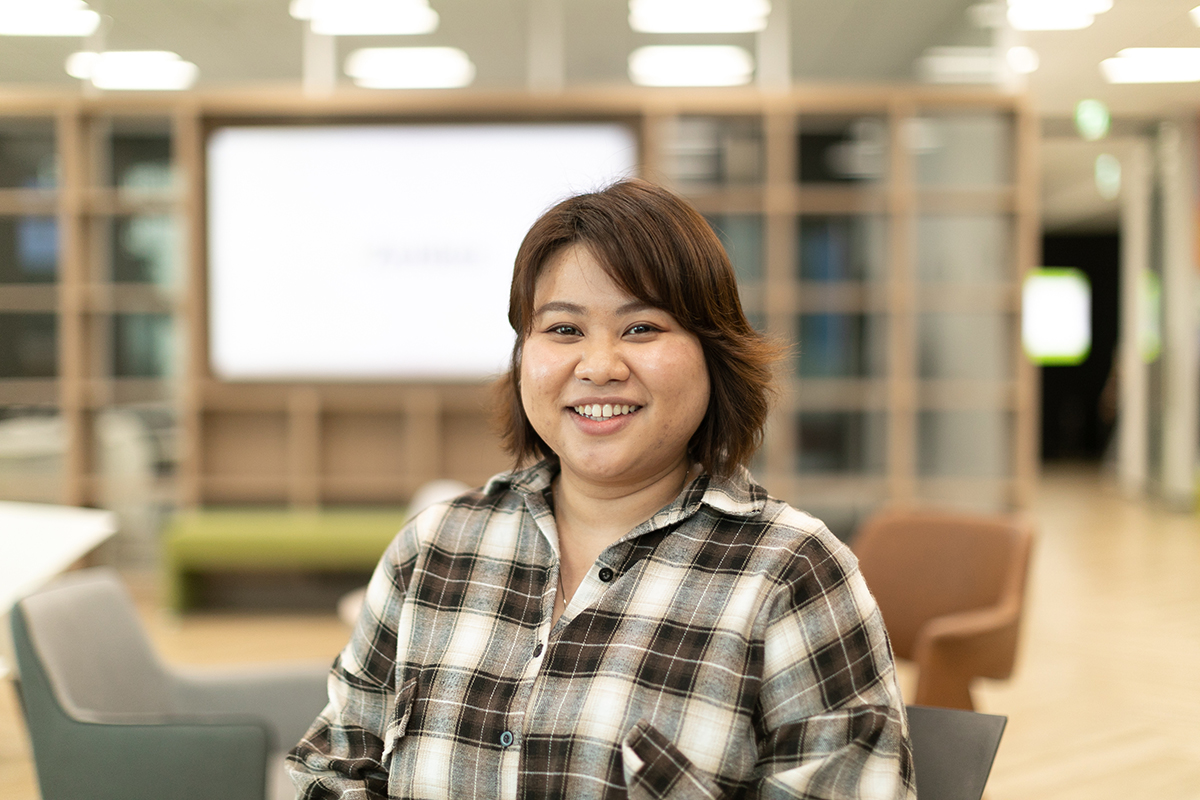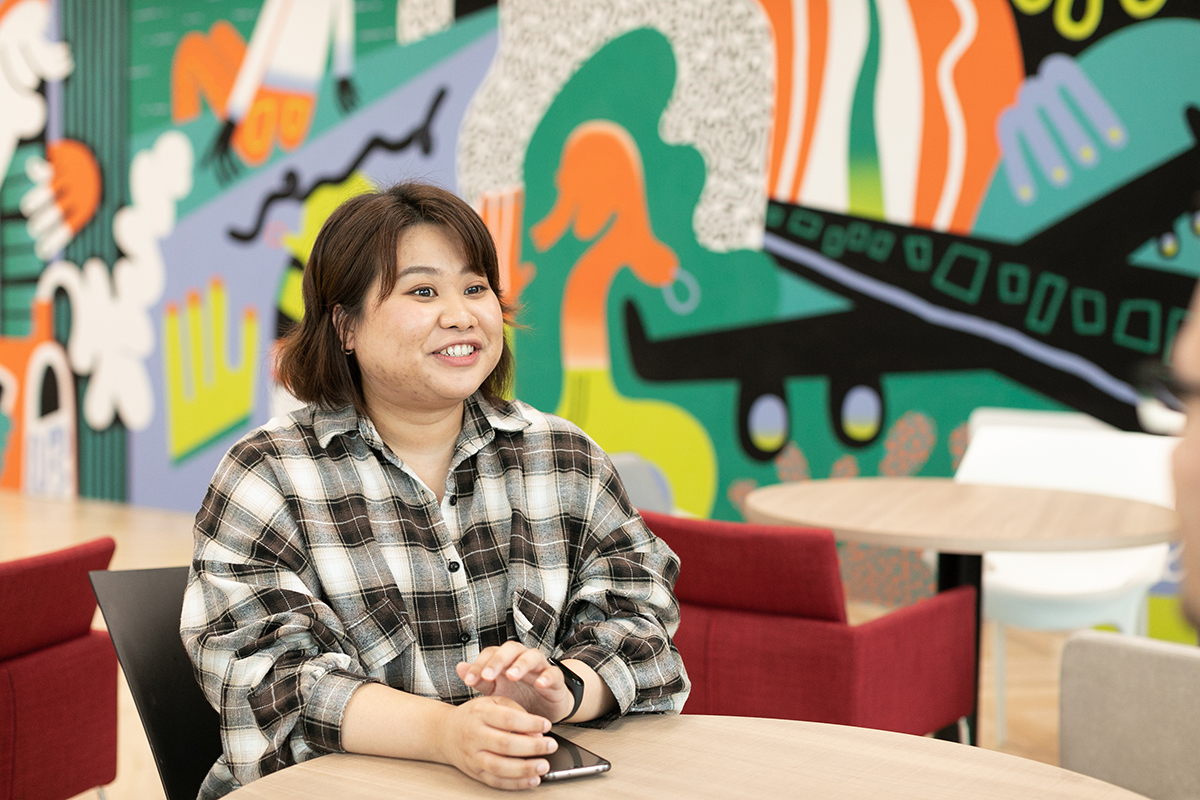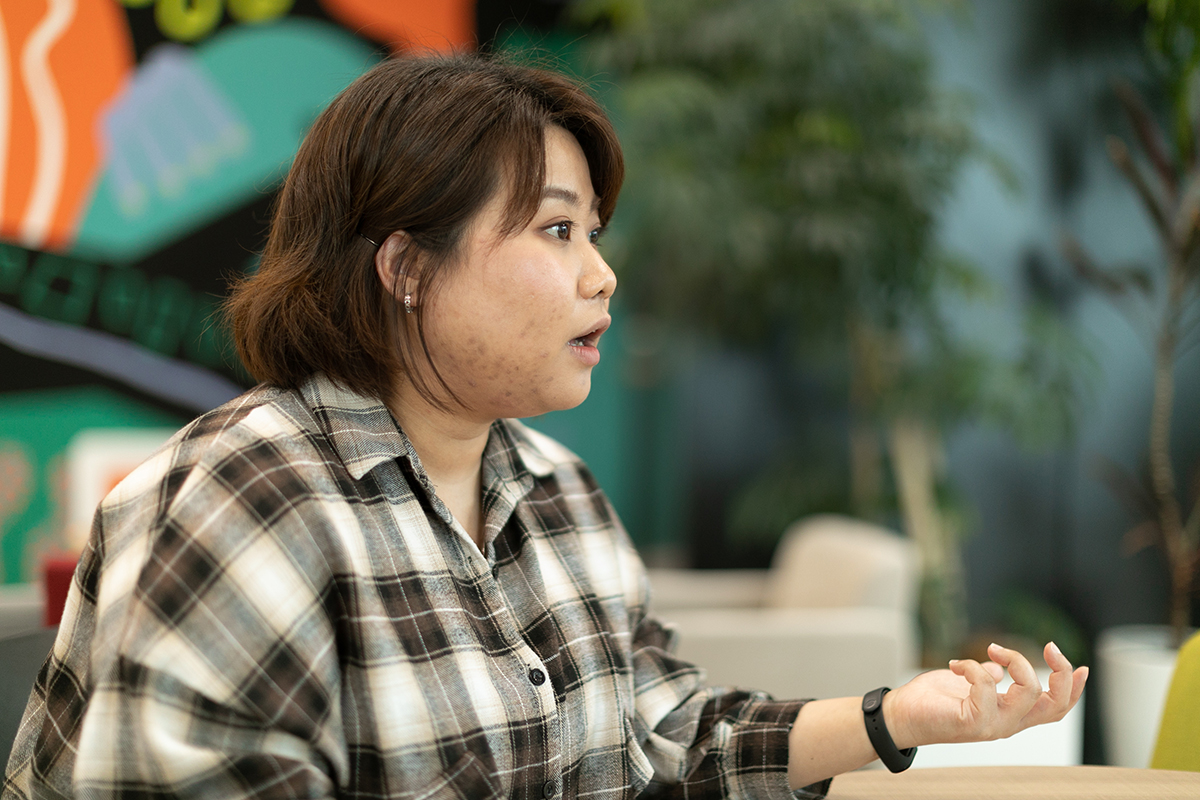Interview: Working in Japan as a Foreign Programmer

by Florian
For our next entry in our interview series, we talked to Julaya, a programmer/front end engineer from Thailand. Read on to find out about her way to Japan and the little victories and hardships of everyday work in Japan.
コンテンツ
Julaya’s Profile
Name: Julaya (31)
Country: Thailand
Majors: Computer Science, Media Design
Industry: IT/Web
Japanese Level: N1
Work status: Regular employee
Job hunt: 4 job fairs, ~50 application, 1 job offer
Florian: First, please introduce yourself.
Julaya: I’m Julaya from Thailand. I’ve been working in Japan for 7 years. Back in my home country, I got a Bachelor’s degree in Computer Science and then worked for an American company in Thailand for about two years. After that, I came to Japan to learn Japanese and get a Master’s degree at Keio University. After graduation, I entered my current company.
The way to Japan & the job hunt
F: What was your incentive for coming to Japan?
J: I like J-Pop – I’ve been a fan of it since my high school days. Back then, I couldn’t understand Japanese at all but I wanted to understand the lyrics, and that’s what made me begin studying Japanese on my own. At that time, my parents were always telling me to study for university entrance exams, so I couldn’t go to language school. But one of my friends was taking classes at one. I started with borrowing their textbooks and learning with them, but that only got me so far. It took me until my third year of uni until I started learning Japanese in earnest, in an elective course.
F: And after that you worked in Thailand for a while, and then came to Japan…
J: Yes, I went to language school in Japan for about one year. My skills were still very basic so it was pretty hard at first, but with time, it worked out. After that, I went to grad school in Japan for two years. I couldn’t find a job right out of university, but I did a lot of job hunting after graduation. I got my job offer in January, three months before the new graduate starting date for that year. Just in time!
F: How did you search for jobs?
J: First, I sent out a lot of resumes through job portal websites. I think I sent about 50, but I only received replies from around 10 companies, and after every interview, I was told that my Japanese wasn’t quite good enough. That pushed me to study a lot harder! (laughs)
I also went to two job fairs. When I went for the first time, I was still in university, but I hadn’t taken the JLPT yet. I visited the booth of my current company but was told that it’d be difficult to hire me without a JLPT certificate. After that job fair, I took the N2, passed it, and went to the same career forum and that same booth one more time. By then, I was pretty bent on getting into that company! (laughs)
F: Coming back to the same company booth … that sends a pretty strong message! (laughs) And they took you in the end, so it worked out. By the way, what did you study at grad school in Japan?
J: My course was called Media Design. We researched all kinds of media from around the world, analyzing what was being made where and for whom. We were not only researching typical channels like TV or the internet but also did work for a Japanese pop culture event at our university.
F: I see. So you learned the technical stuff in Thailand, and in Japan, you leaned towards design.
J: In my case, the course was about “design” in a broader sense – not only using Photoshop to make the actual graphics, but also concepting, planning, and so on.
Working at a Japanese company
F: Sounds interesting! I’d like to know a bit more about your work. What is it exactly that you do right now?
J: Right now, I’m responsible for the coding part of website creation – a front-end engineer, basically. Sometimes I make websites from scratch, but I also create original WordPress themes or customize existing ones. Aside from that, I’m also the IT contact person in my department. Whenever someone has trouble with their PC or wants to have some software installed, I function as the intermediary between them and the IT support department. Right now, I’m also taking care of a fresh graduate in a mentor-type role.
F: It’s been about three years since you joined your company. Where do you think have you been most able to contribute?
J: I made a website for another division – it’s a site that connects people from India with Japanese companies that are open to hiring foreigners. It’s a source through which our company gets customers, and by creating and maintaining it, I think I’ve been able to contribute.
Recently, I also another request for a website from the same department, aimed at Indian university students this time. The site’s in English, and it introduces Japanese companies to the students. Many people from India don’t know Japanese that well yet, so I think that website is going to be a useful source of information for them – I’m looking forward to creating it!
Office communication & challenging yourself
F: At your company, almost everyone is speaking Japanese. Is there anything you think is important when working in such an environment as a foreigner?
J: Yes, I think you have to work on you communication skills in. When I talk Japanese, I sometimes find myself pronouncing words in English when I’m using Katakana loanwords. I also think it’s important to speak your mind. Many Japanese people keep their thoughts to themselves. So sometimes you need someone who speaks up when they think something’s not right.
F: That’s something you can do because of your foreigner status, right?
J: Yes. But you shouldn’t push your opinion on the other person. Instead, it’s better to say “This is how I think about this. How do you think about this?” as it leads to actual conversations.
F: By the way, how is communication at work? You mentioned that you took the JLPT N2, but have you taken the N1 as well?
J: yes, I’ve passed N1 by now! And my communication skills have gotten much better, compared to back when I first entered the company.
F: Was there anything you struggled with in your early days?
J: Speaking Japanese in general, I think … I was told by the CEO that my Japanese was unacceptable! (laughs) That’s about the level I was on. At grad school, I basically only spoke English for two years … so when I started my job hunt, my Japanese had gotten quite bad.
F: Ah, so your grad school course was in English!
J: Yes. At that time I was only spending time reviewing what I had already learned and mostly surrounded myself with friends from Thailand. Not talking to Japanese people around me enough was a big reason for why my Japanese got rusty.
F: That can happen quite easily…
J: Now, my Japanese would probably still get a bit weird even if I returned to Thailand for only one week! (laughs) Making Japanese friends and acquaintances are really important…
F: I’ve experienced the same. During my two semesters in Japan, I also ended up spending quite a bit of my free time with non-Japanese friends. I didn’t exactly forget how to speak Japanese, but after the year was over, I felt that I could’ve made a lot more progress if I had created a different environment for myself. It can be difficult …
J: That’s probably a problem a lot of foreigners in Japan can relate to (laughs)
F: How about other ways of communication, like phone calls? Are you comfortable with them?
J: Compared to when I first entered the company, the phone at work has become an extension of my body. Whenever it rings I immediately pick it up and go “おつかれさまでーす!” At first, I was afraid of picking up the phone. Most of the calls are internal, but every once in a while there are external ones as well, so I was afraid that clients would get mad at me. Back then, one of my older colleagues told me that if I continued to not avoid it, I would limit my own growth and that I should strive to overcome my aversion. From then on, I started to think about it more positively – as a method to further my own growth.
F: I really comes down to creating situations where you have no choice but to challenge yourelf. That can lead to some serious growth.
J: Among the people that joined the company with me, there was another foreign fresh grad that really impressed me with their skills. They were another motivating factor for me – I wanted to get on their level. I think it’s good to look at coworkers and others around you both as friends and rivals.
F: Is there anything specific that you want to at work do in the future?
J: Yes! One of our company’s fields is language education, and I’ve been thinking about making a language learning app for the school. Especially now under corona conditions, a lot of services are going online. I’m interested in making a smartphone app for online lessons. But my skills are not quite high enough yet, so I’ll have to start by studying up and proposing my ideas at work.
F: What programming language are you thinking about for that project?
J: For a smartphone app … either Swift or Java. I learned Java at university, but it was my least favourite subject (laughs)
Aside from app development, another thing I’m interested in is creating websites with stylish animations. But during everyday work, you can’t just make a website all flashy just because you feel like it. It needs to have a purpose, and you can’t ignore other elements that go into website creation such as SEO. So to make a convincing proposal, I still need some knowledge in that area. Right now, I’m having a lot of fun studying so I can one day create a site that’s both functional and cool-looking.
Advice for job seekers
F: Do you have any advice for people who want to work in Japan?
J: I think as a foreigner working in Japan, you should keep an open mind and adjust to your surroundings. You don’t have to change yourself completely, but it’s important to always think about whether there’s a way to adapt and synchronize with the person you’re working with.
F: Was that something that was hard for you at first?
J: Yes. At first, I had a lot of pride and thought that I could already do everything that was asked of me, although the reality was different. By throwing that useless pride away, you’re able to widen your horizon. Always be aware of what you don’t know yet, strive to know more, and take in lots of different ways of thinking.
F: Thank you for the interview!
Any questions?
Thinking about working as a programmer or developer in Japan and still have questions? Ask away in the comments! We’ll check back with Julaya and give you some advice about how to prepare and find a job. If you’re interested in Julaya’s company, check out our article on it over here or visit the recruitment sites (*in Japanese) directly by clicking the buttons below.
You want to work in Japan?
Find out how others got their jobs!
■ Everyday work as a designer, Tanya from Ukraine
■ Working in Japan as a video creator, Joshua from Singapore
■ Online Application and the Apparel Industry, Clemence from France
■ More job-hunting advice from your Senpai
Recommended Posts

How to Get Along with Your Japanese Boss
25 5月 2021 - Work, Working Culture

The 10 Most Popular Japanese Companies in 2021
19 5月 2021 - Work





